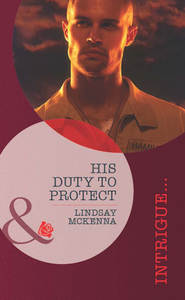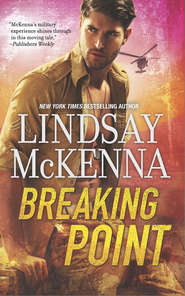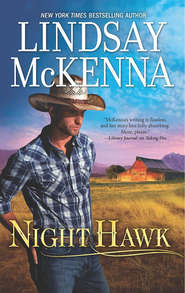По всем вопросам обращайтесь на: info@litportal.ru
(©) 2003-2025.
✖
Brave Heart
Настройки чтения
Размер шрифта
Высота строк
Поля
Serena saw a brown-bearded miner hesitate, his pants down. An Indian woman lay unconscious beneath him. Mules were braying and stampeding in all directions, mud being kicked up everywhere. The miner fumbled toward his holster, but it lay too far away from him to retrieve before Serena got to him. At the last second before she charged him, a crazed mule began kicking out viciously with his rear feet. The second kick caught the miner in the head just as he stretched across the muddy earth to reach the gun. In seconds, he was dead.
“Bitch!” a blond-bearded miner roared at Serena. “You’re gonna die!” And he jerked up his trousers.
Serena saw the miner lunge for the closest weapon—a limb of a tree that was twice as long and thick as the one she carried. A baby, no more than three months old, lay in a cradleboard on the ground between the miner and herself. The baby was in danger if she charged the miner.
The blonde scooped up the limb, his blue eyes gleaming with hatred as he whirled back upon the red-haired woman. “You’re dead, bitch!” he roared.
Unleashing further rage, Serena threw her weapon as hard as she could at the miner, and ran forward to pick up the child. Escape! We have to escape! The miner ducked her poorly aimed tree limb and scrambled after her. Her legs rubbery from fatigue, Serena tripped over the hem of her long skirt. Holding the baby to her breast, she fell forward. At the last moment, she twisted to her side. Her shoulder and hip took most of the impact, absorbing the shock of the fall instead of the baby.
“No!” Evening Star shrieked, running toward the miner who stalked the red-haired one and Redwing’s infant daughter. She lifted the branch, hoping to frighten away the half-dressed miner. It was no use! Despair filled Evening Star. She increased her forward speed, hoping to protect the white woman and her sister’s daughter. Too late! Too late! Evening Star saw the miner raise the limb like a mighty sledgehammer above his head as he loomed over the crouching white woman. As she struggled closer, Evening Star could see the defiance and hatred in the white woman’s eyes as she faced her enemy, unafraid. To her bosom she clutched the cradleboard, protecting Redwing’s daughter.
Serena stared up into the blond miner’s angry blue eyes. Her hatred of him as a man knew no bounds. His arms were thick and hairy, looking more like oak than human appendages. He was built like a bull. As he raised the limb that would strike and probably kill her, Serena no longer cared. What mattered was the tiny baby clinging to her breast. It was a good trade, she thought in those seconds that slowed to a crawl as she saw him lift the club to kill her. Her life wasn’t worth living. But the baby had a chance, undefiled and untouched by whites.
Something commanded Serena to look beyond the miner who would take her life. An eerie calm filled her as she lifted her eyes to a hill not far away from where she knelt. An Indian warrior on a black horse appeared at the top, his bow drawn back, the arrow pointed down at her. At that moment, the sun brimmed the horizon, sending blinding shafts of light across the land, illuminating the warrior in blinding radiance. Serena had expected herself to feel revulsion and hatred for the Sioux warrior because he was a man. She felt anything but that. There was a calmness about him, an energy that radiated from him just as the sun’s rays enveloped him and his horse. He was dressed in buckskin, his thick black hair in two braids, with brown and white golden eagle feathers attached to his head.
Serena watched the limb coming down to strike her. She saw the warrior draw back the bow to release the arrow. Who would kill her first? Suddenly, she felt acceptance of her death. Her eyes never left the warrior’s grim, chiseled features. His face was as hard and rugged as the cliffs along the Irish Sea. There was no forgiveness in the lines around his broad, generous mouth or in the narrowness of his sable eyes that glittered like those of a barely tamed wild animal. The look in those eyes, in that split second, when they made direct contact with her, changed. No longer were they hard. Instead she not only saw, but felt his concern and anguish over her predicament. A shaft of warmth, of hope, shot through her. Why would he care? I’m a stranger. A white woman. Confused, Serena’s last conscious thoughts revolved around that feeling that gave her hope and courage when she had none left herself.
Black Wolf released the arrow. With a grunt of satisfaction, he saw it strike the miner in the back of the neck. But not before the miner had struck the white woman who protected Redwing’s child. Angry that he’d not arrived moments sooner, Black Wolf sank his heels into his mount and galloped down the hill, while loading another arrow into his bow. In twenty-five years of hunting, Black Wolf had never missed a target from the back of his favorite buffalo runner, Wiyaka. Squeezing his long, curved thighs against the ebony mare, he guided her with astonishing precision between the women and children, his targets the last two miners.
Satisfaction soared through Wolf as his arrows struck their targets cleanly and with deadly accuracy. He pulled on the rawhide jaw cord of the mare, whirling her around. What greeted his eyes broke his pounding heart. His oldest sister, Redwing, lay unmoving, a red stain eating up the front of her buckskin dress. The miner who lay dead at her side had a broken neck.
As he dismounted, Black Wolf heard another cry. He saw his sister Evening Star drop a tree limb and race toward him, arms outstretched.
“Wolf! They attacked us out of nowhere!” she sobbed, throwing her arms around him. “We never heard them coming.”
Wolf held his youngest sister of seventeen. They were surrounded by carnage. Six women and four children had gone out to hunt roots along the river. Something they did once a week to help feed the village. His eyes grew stormy as he swept his gaze across the inert bodies of the miners. “Why did they do this?“ he croaked.
“It’s always the same,” Evening Star wept. “Why can’t the wasicun, the white man, leave us in peace? Redwing!” she wailed. “They killed her!”
Bile crawled up into Wolf’s mouth. His lips thinned. Redwing’s throat had been slit and she had been raped. Squeezing Evening Star gently, he whispered hoarsely, “Come, we must get help. You must mount Wiyaka, and ride to the village. Get five warriors and extra horses.”
Wiping tears from her round face, Evening Star pointed to the left. “She saved us, Wolf. The white woman charged the miners like ten warriors. She was swinging that oak limb as if it were a war club. If not for her, Redwing’s baby would have been killed. I don’t know if she was a member of their party or not. She struck like a thunder being, surprising all of them.”
Wolf stood there looking at the white woman, who lay unmoving, the cradleboard beneath her body. “Ride for help, Evening Star,” he commanded. “I will do what I can until they arrive.“ Boosting her onto the black mare, he took his medicine parfleche from the rear of his cottonwood saddle. “Hurry!” he ordered, slapping the horse on the rump.
As soon as Evening Star disappeared over the hill, Wolf turned to those who needed him. As medicine man, his life revolved around the well-being of his people. Little Swallow, his twenty-six-year-old sister, limped toward him, her face etched in pain. She too, had been raped.
“Wolf,” she pleaded, “see to Redwing first.”
“She’s dead.”
Little Swallow winced as if struck. At her side was her daughter of three. “Then take care of the others first. I will be fine.”
Wolf reached out. “Your daughter?”
Little Swallow knelt down, examining her distraught daughter. “She is all right. She ran and hid in that bank of willows when the miners attacked us. All she has are some scrapes and bruises.”
Nodding, Wolf turned his attention to the other two Indian women. One had a broken arm, the other suffered a broken jaw. Swallowing his hatred of the wasicun, Wolf couldn’t erase his curiosity about the woman with the red hair. She was a warrioress, challenging her own kind. Why? Weren’t all whites like these miners?
He placed the broken arm between willow bark and then wrapped it with rawhide thongs to keep the bone in place. For the woman with the broken jaw, there was little he could do but give her herb to hold between her teeth to minimize the pain. And there was even less he could do for Little Swallow, who suffered without tears or complaining.
“Cleanse yourself down at the river,” Wolf told her in a voice strangled with emotion.
“What about the red-haired one? She bleeds heavily from the head.“ Little Swallow’s brown eyes narrowed. “She saved us from sure death, Wolf. Does she not deserve our help?”
He scowled.
“You are a wapiya, a healer,” Little Swallow began in a pleading tone, “and you’re bound by vows to save another’s life. Do that much for her. She saved Redwing’s baby, your niece.”
Moved by Little Swallow’s impassioned words, Wolf nodded. The healer in him wanted to go to the white woman. But part of him, the part that had had so many of his family members murdered by the wasicun, wanted to leave her to die. Another part of him was afraid of her. Afraid! Why should he be afraid of a mere white woman? As he approached her, Wolf realized that she was anything but “mere.“ Her red hair lay about her face like a blazing halo of light from Father Sun. Crouching, he moved her arm aside to see if Redwing’s baby was unharmed. Relief fled across his hardened features as the baby, who had been named Dawn Sky, slowly opened her eyes, staring up at him.
“Little one,” he soothed, setting aside the parfleche and carefully removing the cradleboard from the white woman’s arms. To his surprise and relief, Dawn Sky was uninjured. And like all good Lakota children, the baby hadn’t whimpered one cry during the battle. Straightening up, Wolf took the child in the cradleboard to the bank of willows, placing her with Little Swallow’s daughter. Making sure both children were well, Wolf walked back to the white woman.
As he placed her on her back, he admitted in some small part of himself that she had been braver than any five warriors he’d ever known. Attacking six armed miners with nothing more than a tree limb was a great coup. For that, he would name her Cante Tinza, Brave Heart, even if it went against his beliefs.
Hesitating in his examination of her, Wolf had never seen red hair before. It was thick like a horse’s mane and heavily matted with mud. His thoughts shifted to the women who sat wearily nearby. If they saw him vacillate in attending to her injuries, they would surely laugh at his unexplained cowardice. Picking up a thick strand of red hair, Wolf removed it from the region of her breasts. Blood had congealed across her bosom as well as on her right temple. Where to begin? The scowl on his broad brow deepened as he unbuttoned the front of her dress. His fingers trembled as he lifted away the thin material. An ivory chemise crossed her breasts, and that too was soaked with fluids from the injury. With an oath under his breath, Wolf pulled the knife from the scabbard at his side. Placing the point in the material, he slit it upward.
A grunt of surprise escaped him as he pulled the chemise aside. The woman’s breasts bore deep, fresh burns. He hunched over, perplexed by the unusual wounds. She had small, firm breasts, their ivory roundness crowned with pink-tipped nipples. The urge to touch them, to see if they were as velvety soft as they appeared, moved through Wolf. Disgusted with his physical reaction to Cante Tinza, he turned his thoughts back to healing. He took a special powder ground from comfrey root and sprinkled it across the terrible scars on her breasts.
“Who has done this to her?“ Little Swallow demanded, leaning over his shoulder. She jabbed her finger downward. “This woman has been hurt by wasicuns.”
Wolf gave her a bare glance. “It could be the Crow who did this, too. They are known to burn great scars on the bodies of their enemies.”
“Perhaps,” Little Swallow muttered, coming around to kneel at the woman’s head. Taking a cloth wet from the river, she pressed it against the head wound. “Has someone whipped her, also?”
Glancing up from his work, he saw that Little Swallow was pointing to some fresh, pink scars that lay like ribbons across the white woman’s small, proud shoulders. “Let me dress these wounds first, and then we will find out,” he muttered.
“She saved us, Wolf. Do not be bitter about trying to save her.”
Compressing his lips, he held on to his anger. Little Swallow had been raped, and she was unraveling emotionally before him, her hands shaking as she daubed the blood away from Cante Tinza’s head wound. “I will do what I can,” he promised quietly.
“I saw the hatred in her eyes,” Little Swallow whispered, tears beginning to stream down her cheeks. “She hated these miners. Perhaps they tortured or abused her—like they abused us….”
“If that is so, then she has an even braver heart than I first thought,” he admitted as he carefully closed her chemise and rebuttoned her dress.
“I have never seen someone fight with such fury, such anger,” Little Swallow continued.
Wolf reached over, placing his hand on Little Swallow’s slumped shoulder. “Tanksi, sister, go and sit down. You are shaking like a young leaf in a storm.”
Managing a wobbly smile, Little Swallow nodded. “You are right, tiblo, brother.“ Patting the woman’s shoulder, she whispered, “This one is special. I do not care if she has white skin—her heart is Lakota.”
“You have always had an eye on those who are good and kind,” Wolf agreed. “Now, go. Sit and rest. The warriors will be here shortly to take everyone back to the village.“ It felt as if a hand were squeezing his heart. Wolf acknowledged his younger sister’s words of wisdom. No longer did he try to hold his hatred as a barrier toward Cante Tinza as he moved to dress her head wound. If not for her courage, he could have lost the last of his once large family. He owed her much.
His mind moved forward. Many things would have to be done. Once the bodies of the miners were found, the Lakota would be held responsible for their deaths by the wasicun whether they deserved it or not. Chief Badger Mouth would have to move the village; otherwise fort soldiers would kill all of them, swooping down upon them like hawks from the sky. Right now, there was an unstable peace between all Lakota and the wasicun.
There were Lakotas who wouldn’t like the fact that he was going to take the red-haired woman into his tepee, Black Wolf thought. Badger Mouth would oppose it. Every family in the village of one hundred people had lost someone to the guns of the wasicun. They bore hatred toward the miners, who continued to steal their ancestral lands. With a sigh, Wolf gently ran his hand across her dirty forehead. She needed to be bathed, and her hair needed to be unknotted, washed and combed. Despite the torture Cante Tinza had undergone, there was still beauty in her face. As Wolf heard the sound of hoofbeats reverberating through the foggy dawn air that told the warriors were approaching, he wondered what color Cante Tinza’s eyes were.
Chapter Two











